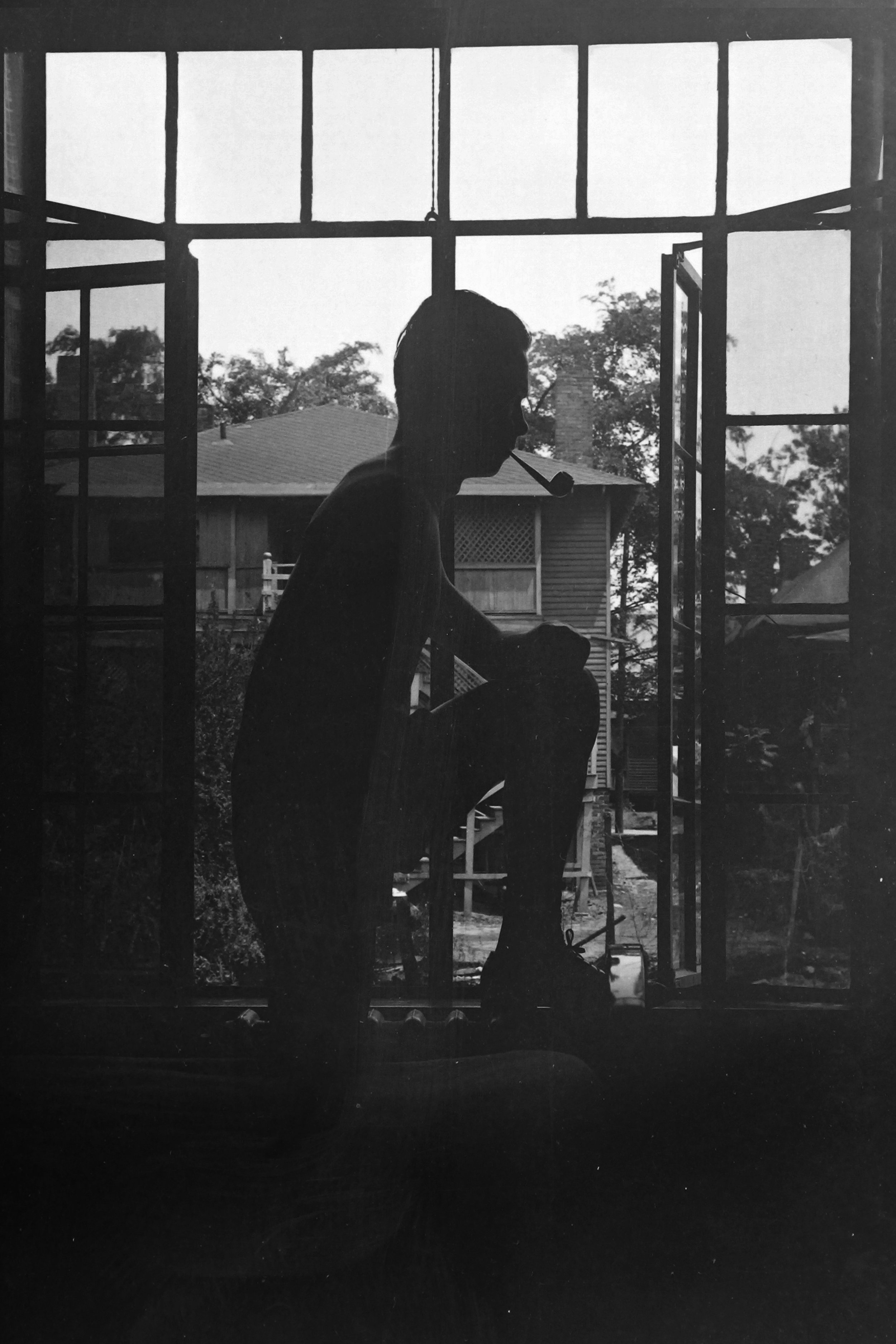The Pen Addict
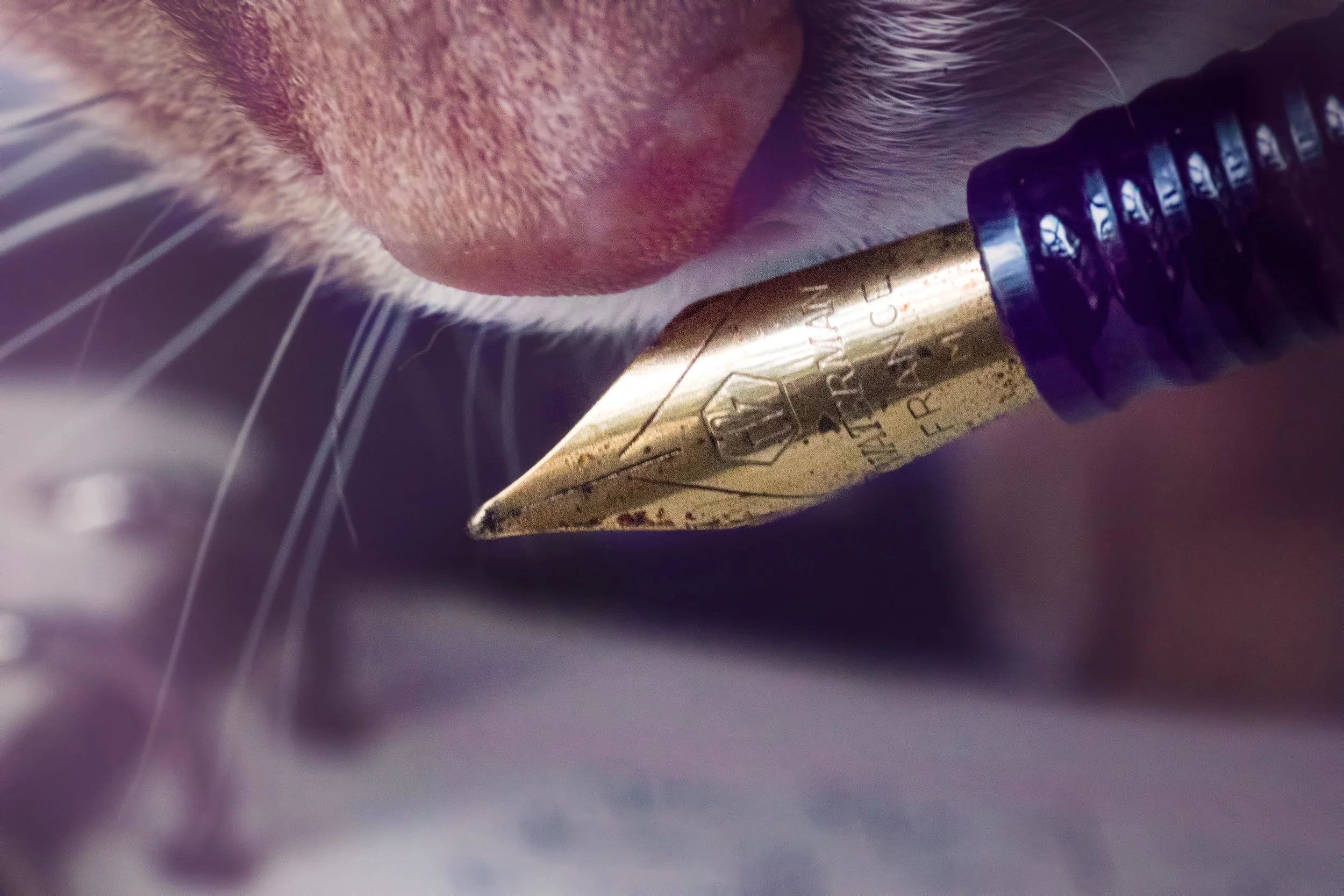
A journal entry from March 4, 2018.
When I am sitting down to write, I admit a fondness for interesting writing implements – ones that don’t just feel good in your hand, the weight and balance of them, but also look good, invite closer inspection and silent admiration. To go with them must also be good paper – heavy and smooth, absorbent enough to prevent streaks, but not so absorbent that the strokes lose their whimsy. Lines should be crisp. Differences in weight within the curves of a single letter should remain. I have yet to find the perfect color ink, though. I am drawn to purple, but no one yet has made the right shade for me.
When you are learning to live with grief, or as you prepare to enter it - something called anticipatory grief, which I still say is the most cutting kind - you learn quickly that no one can carry the burden for you. No one can and no one may. It is like running a marathon with a hundred pound pack on your back that you can never put down, not even for a moment, no matter how badly you flag, stumble or fall. Other people may be running by your side, keeping you company and offering you refreshment, if you are lucky, but your grief is your own. And so must much of your healing be. Most people haven't a clue what their inner resources really are, or how to exercise them, until challenge or tragedy strike. And then it is sink or swim.
Journaling and Meditation
For me, journaling was the first, and meditation the second, thing I turned to, in desperation, as I felt our family entering the final year or two of Dad's life. This was when a life-long affinity for writing implements took an almost obsessive hold over me. As if a pen could save a person.
Mightn't it, though?
Journaling was a first line of defense in learning to live with anticipatory grief.
I was barely recovering from Mom's passing two years before, when the full weight of anticipatory grief for Dad laid me flat. I went out on to the deck one day, fell to my knees, and let out a blood-curdling, primal, and - if you can imagine it - completely silent, scream. I called it a psychic scream because it took place wholly within my mind, exploding mental shrapnel into the void, shattering my energy field to pieces. For a series of several seconds, it also had complete physical control over my body. I buckled under the pressure of it and felt paralysis until it had passed. An outside observer might have seen my cramped figure, on its knees, contorted and motionless, and feared I was having a stroke. It was the first of many I let rip over the next few years - in the shower, at a stop light, checking the ripeness of melons.
Mom and Dad used to throw meditation parties in the 1970s - fondue parties, bridge parties, book parties, sometimes meditation AND fondue... Mom in metallic strappy sandals and Dad in a turtleneck and blazer. So chic. So with it. The happy din of their soirees would lull me to sleep, for I was just a little thing at the time and enjoyed such noise that reassured me of being safe and loved and belonging. I imagine it reminded me still of being in the womb.
Sometimes what woke me up would be the sudden silence that fell. In these instances, I would creep up the stairs from my bedroom, peer through the balustrades toward the living room, and sometimes see that everyone had gone home or to bed. But other times, I would see them all still there, sitting silently in a circle on large floor cushions in primary colors - lights dimmed, palms up, eyes closed, and faces soft.
(Note: if you are on mobile, turn the phone sideways to see the captions for the slides below).
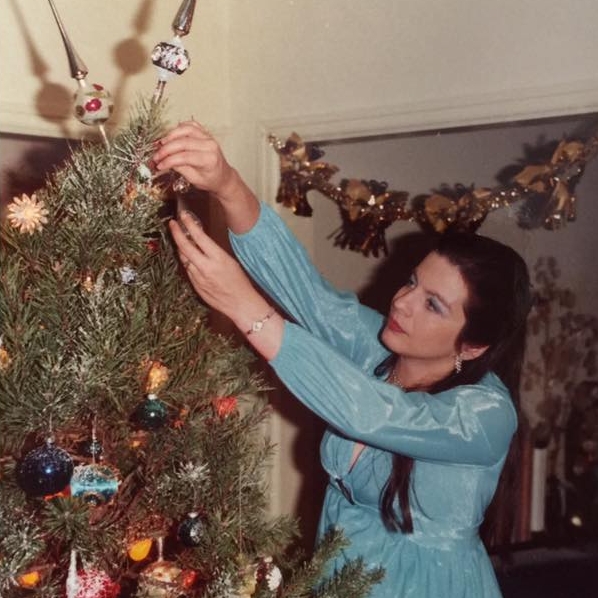
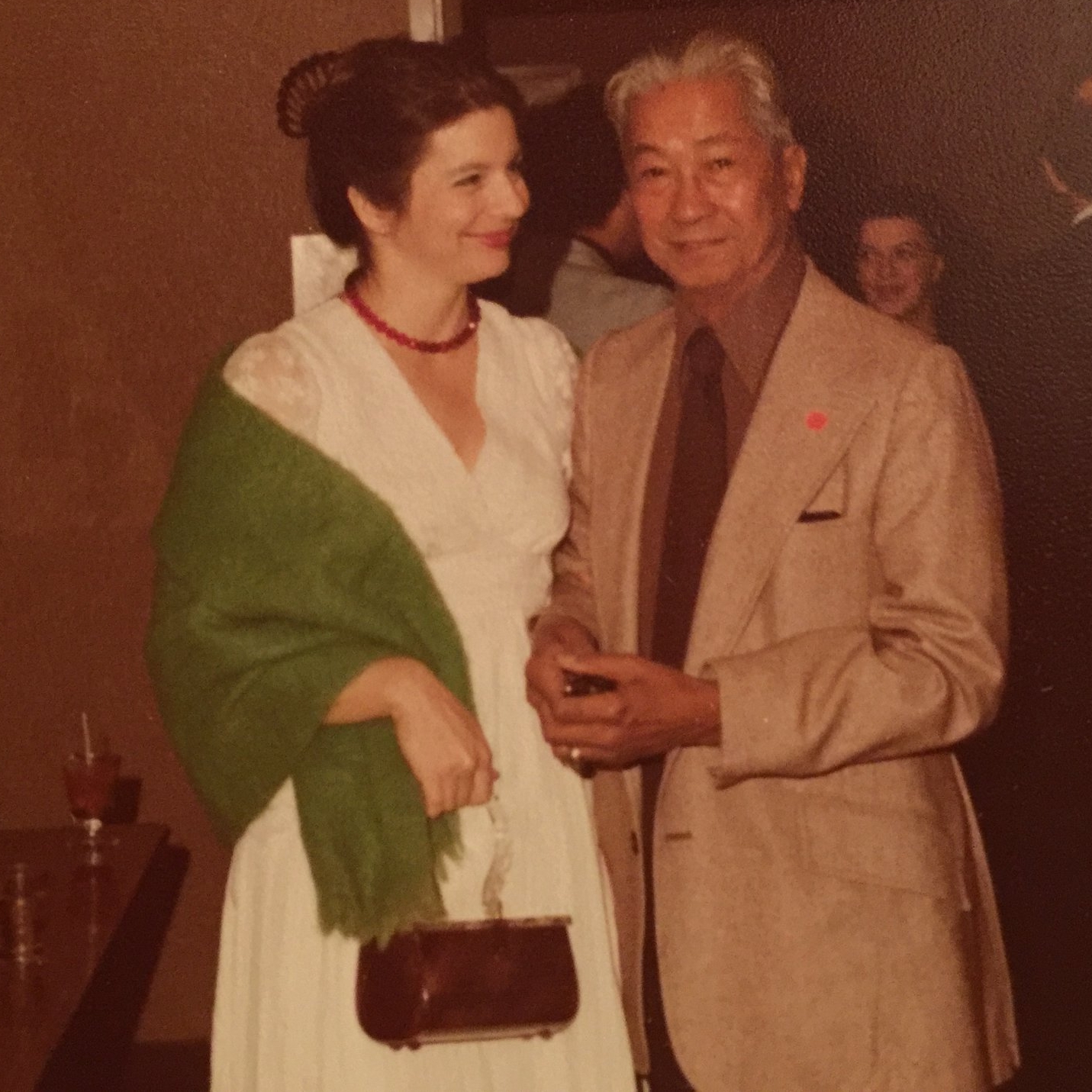
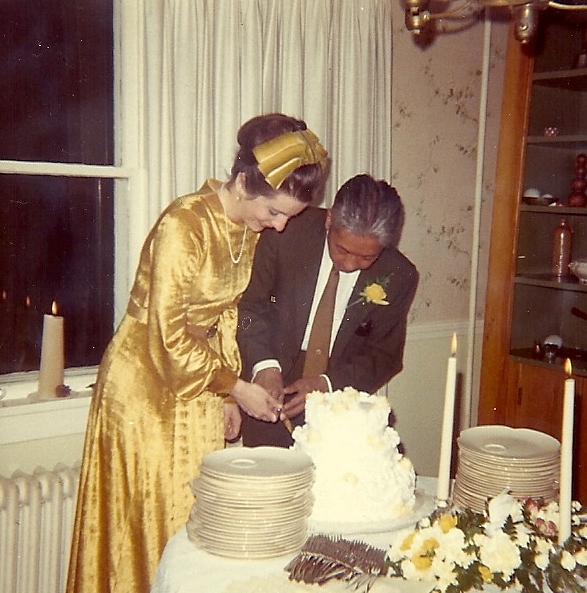
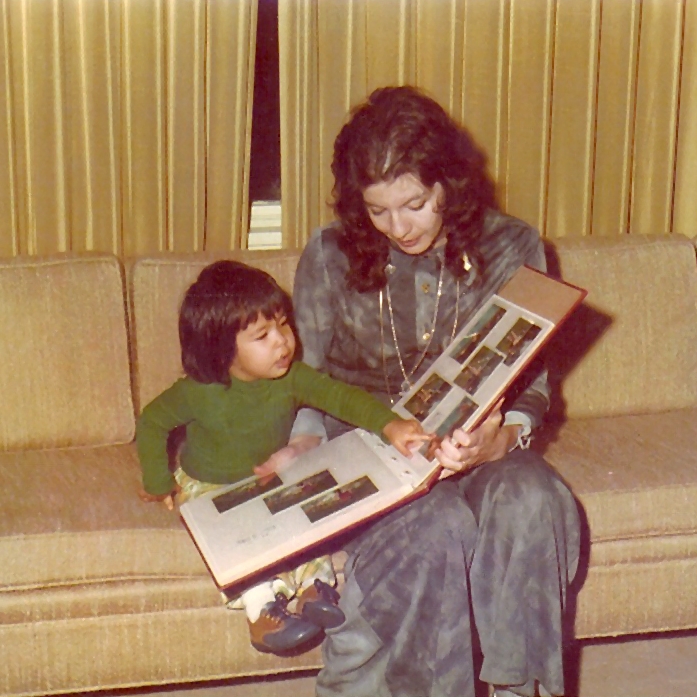
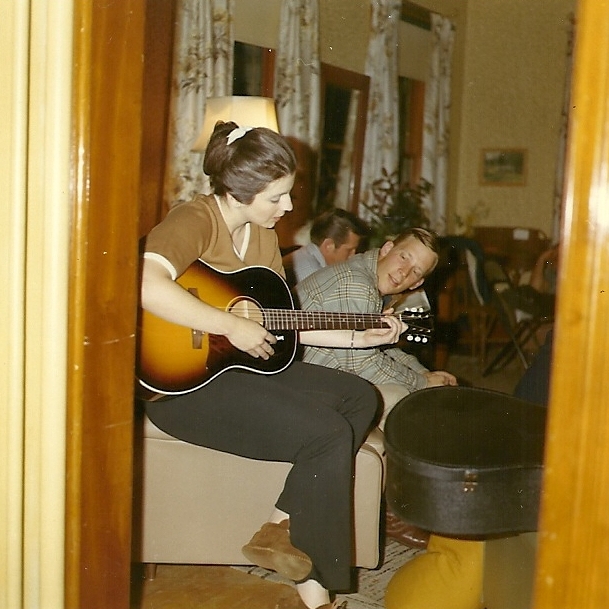
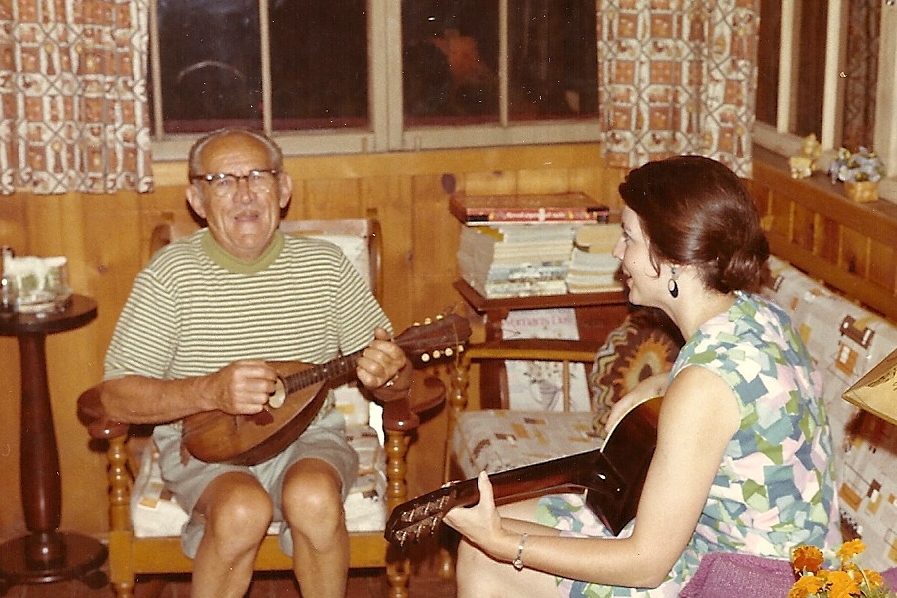
Mom and Dad were a chic couple who loved parties. Not the wild and hedonistic kind, but smaller gatherings of intimate friends with whom they could sing, talk, dance, laugh, and philosophize in equal measure. Meditation-and-fondue parties? Made perfect sense. I loved Mom's sparkle, glamor, and quiet knowing; and Dad's quickness to laugh and easy command of brilliant conversation.
At age 41, around the time of my first "psychic scream" incident, I had never meditated before - couldn't sit still, couldn't clear my mind, got easily distracted or bored.... But by the spring of 2015, it was more painful not to do it, than to sit and try harder. I remembered Mom and Dad's old parties and the looks on their faces in low light, with their eyes closed. I remembered the feeling I got when watching them. There was salvation there, I knew it.
Imagine my delight when I finally succeeded and found that meditation doesn't really clear your mind; it clears your mind of clutter so that truth and light can shine in. Behind my placid exterior, my meditations, in fact, are usually a riot of colorful visions - action-packed, grand in scale, and cinematic in scope. My mind becomes a personal movie screen, and the landscapes I explore, the quests I embark on, the characters I meet, and the gentle wisdom I find there, are better than any big-budget Hollywood epic. I assure you, it is true. In time, this world has become almost as real to me as my ordinary reality. How I wish I could talk to Mom and Dad about my experiences. And theirs.
A Meditation in March
I usually come to a meditation with a problem. On this day in March, I have lost faith. I wonder if I am up to the task of writing this book that I see now only as "through a glass, darkly." I lie back, close my eyes, and relatively quickly find myself approaching an 18th-century French chateau. It is a real-life place, known as Chateau de Gudanes, whose loving restoration by an Australian couple I have been following on social media for a couple of years. I have pored over so many pictures and articles and postings on the project, that I know my way around a good portion of the chateau and its grounds. Why I am suddenly here in my meditation, however, I do not know. I let myself go with it.
I am standing outside the grand wrought-iron gates, hung from stone gate posts covered in ivy – not the delicate tendrils one imagines from fairy tales, but effusive foliage that almost completely disguises the true size and shape of the stone pillars it obscures. If it weren’t so obvious that there is no groundskeeper to keep the ivy in check, I would imagine her up to her mid-upper arm to trim back the vine.
In my mind’s eye, I push the gate open and find myself barefoot on the earthen drive leading to the front patio and door in the distance. The earth is hard-packed with only small pebbles rolling free, easy for bare feet to walk on, and the center line of grass that grows down the middle pricks one foot then another as I meander down the path, looking all around. Outside, in real life, it is a blustery March day, but here in my mind the air is warm and thick with the late summer scent of baking meadow grass. I inhale deeply and feel my spirits rise. The saw and chirp of crickets fills the spaces in between. My pace quickens as I break into a tip-toeing little trot, a smile breaking across my face, and soon I am passing a pear tree on my left, where I grab one of the fruits, take a bite, and begin to spin in circles, arms flung wide, smile sent skyward, not unlike Julie Andrews in the Sound of Music. Then, something remarkable: my spinning picks me up off the ground and sends me shooting into the air where I explode like a firework into a shower of sparkles, feeling “one with everything.”
From there, I rush hither, thither and yon, like a joyful wind, wrapping ribbons of air in my wake – around the pear tree right to its crown, down the driveway, up above the chateau and back again. In my bodiless state, I look down and see my own sparkles falling back to earth, where they rearrange themselves in the form of my body again, reconstituting me from the toes up, and pausing at the heart to reinforce it with extra healing energy, making it pulse and glow like a gem catching the light, first red - for life - and then pure white - for healing.
I am now at the front steps, which feel warm from the day’s sun, but are beginning to cool, and I enter the front door, which is open. Large flagstones pave the floor and the chateau windows are all flung wide, allowing breezes and beneficent smells to billow and brush by, even indoors. Although the chateau is still very rustic, there are floral arrangements everywhere. I look to my left, down a hallway to another entrance and see an old man with a wheelbarrow silhouetted against the light from the open door. I sense other people about as well – not servants but… caretakers, and I can tell that they are part of what makes this place feel like home. I do not feel any urge to interact further with them at the moment, but I know they know me, and I feel loved and very belonging here.
I turn to my right and skip up the wide and winding stone stair there with curling wrought-iron handrail. Windows or skylights let in bright white daylight that illuminates the stairwell from above, making it look almost enchanted and certainly inviting. I take the staircase to the second floor and slow down my pace to stroll down the hallway to my left. The corridor is naturally lit by the tall window at the far end. Similar windows running at regular intervals down the right side, throw sunlit grid patterns across the passage floor. On the left, there are tall carved wooden double-doors, each set leading to a different room. I pass one or two and come to a stop in front of the next one and allow myself to look at the wood carvings.
They are vaguely floral in nature and a large heart is carved in the middle of each door. Hearts are on the brass door knob, as well, which is more of a lever: one larger heart on the central knob of the lever, a smaller one on the curlicue at the end. I push the handle down and walk into the room, which is a perfect combination of ruin and romance. The walls and floors are largely bare, with plenty of plaster patches to be seen, but a luxurious Turkish carpet has been flung across the floor at an angle beneath an open window overlooking mountain meadows and bluish peaks. An 18th-century bed frame, and a mattress covered in colorful layers of textiles and pillows sits also at a diagonal to the window, on top of the carpet. A delicate 18th-century writing desk is against the wall between the two windows, with its little drawers and cubbies fairly begging to be gone through. A silk-tufted stool - upholstered in palest blush - is pulled out to just the right spot for sitting.
I notice immediately a number of sheets of gorgeous paper on the desk, and on them my current favorite writing implement. A wooden cup of several others is off to the right. Upon closer inspection, I recognize all of the writing implements as being pens that I have owned over my lifetime. As I push them around in the cup, I see two that Dad gave with some amount of ceremony and flourish, as if to say that he had been waiting for just the right time to do it, and after long watching, the time was now. It had made me feel like I had earned something special when he had given them to me, but I hadn't been quite sure what it was.
The first one he gave me when I was ten or eleven years old. It was just a silver Cross brand ballpoint pen – the kind you can get for a few bucks at Staples – but it came in a box, bedded in blue velvet, which felt special to open. It shone in the light, and he demonstrated how you had to twist it to reveal the tip. The second one is the one he gave me in high school – a Waterman fountain pen, a sleek, shiny black, with straight sides and gold accents. I look at these pens and suddenly it is obvious why I am here.
I had come to this meditation wondering if I had the ability, the wherewithal, the right, to write this book about Dad, and in it, Dad reminded me that it had been he who had given me my first pen. It was a gift that said he knew I had something to say; that it was worth writing down; and worth reading.
In my meditation I sit at the desk and begin to write and the ink flows easily from the nib, without hesitation or faltering. "Dear Dad," I write, "I love you."
"I love you, too," the words write back to me. I sit back and thrill in the magic of it.
And then I begin to write in earnest, and although I cannot read any of the words, I pull back as an observer and can see myself at the desk, and I watch the words flow in through the top of my head, across my (newly fortified) heart, down my arm, out the tip of the pen and on to the page. The words flow in abundance and with ease, and as each new page fills, it slides to the ground, a cascading waterfall of paper rising around my feet on the stone floor.
Like, Comment, Share!
Although the buttons below work, Squarespace is currently struggling with a bug that erases the tracking at random. Please don’t let low or no numbers shown deter you. Likes and shares still help boost my visibility, even if the numbers don’t stick around to show it. Thank you!



